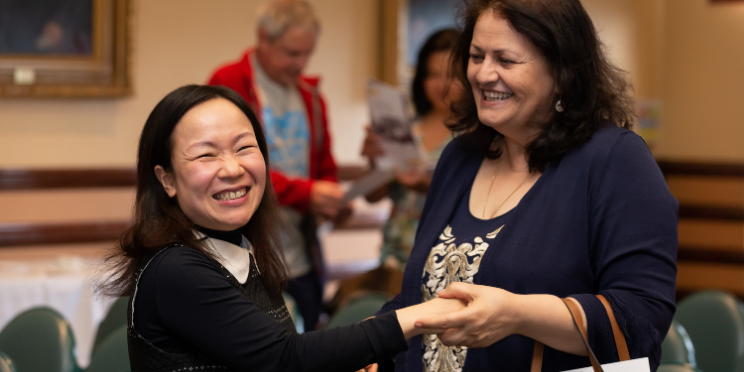
March 2nd will be a big day for mental health in Victoria when the long-awaited report from the Royal Commission into Mental Health Services is tabled in the Victorian Parliament. We hope it is also a landmark moment for the mental health of migrant and refugee women, in which a clear pathway to the improvement of migrant women’s mental health is mapped out.
It is by now widely known that migrant women in Australia are more likely to have poorer mental health outcomes than the general population. Race and gender inequality, settlement stress, pre- and post-migration trauma, social isolation and violence against women, all impact significantly on migrant women’s lives.
The unemployment rate among newly arrived women is as high as 11%, compared with 7.7% in the general population. On arrival, almost half of new migrants spend up to three months looking for their first job. Once in work, migrant women tend to be concentrated in insecure, inflexible, dangerous and poorly paid jobs. The stress that is generated by such types of employment in women’s lives can be compounded by a lack of available childcare. For migrant women, getting family support is often dependent on the vagaries of migration policy; family migration is expensive, bureaucratically complicated and not always achievable. Women who are subjected to gendered violence at home or in the workplace, have an additional burden on their mental health.
It is not surprising to learn, in the context of these significant challenges, that there is a higher incidence of depression and anxiety among migrant women. For new mothers, there are higher rates of perinatal mental illness. It might be surprising to learn however, that despite the need, migrant women are also significantly less likely to access the mental health services they need.
We would like to see changes both inside and outside of the mental health system in the Royal Commission report. First, race and gender discrimination in employment, education and policy settings must be addressed. Improving the life circumstances of migrant women will make an immediate positive difference to their mental health and wellbeing. Second, community-based, tailored, in-language, peer education programs, including on the topic of perinatal mental health, that build mental wellbeing and community connection, raise awareness of mental health issues, refer women to mental health services and reduce stigma, will create sustainable change. Community-based programs must be an integral and robust element of the reform in order to create an early entry point into the mental health system. Finally, the system must adapt itself to the needs of the people who need it most – it must be gender responsive, culturally safe and accessible.
The WRAP is a monthly newsletter about migrant women’s issues. Subscribe to our mailing list here.
